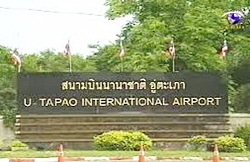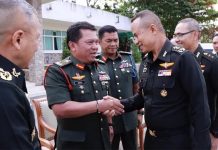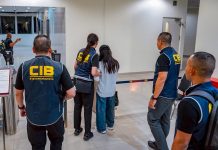BANGKOK, June 23 – Thailand’s Opposition Democrat Party on Saturday called on the government to publicise the details of the United States space agency’s request to use the country’s U-Tapao military airport as a base from which to conduct atmospheric studies.
Democrat Party spokesman Chavanond Intarakomalyasut said his party did not want to complicate the issue or obstruct a project that could benefit the country but it was ready to support the project only if the government clarified whether the plan could affect sovereignty, economy, or investment.

The party wanted the government to reveal the details in Parliament.
The United States requested to set up a disaster response centre at the sprawling U-Tapao base, which straddles Chon Buri and Rayong provinces, and the US National Aeronautics and Space Administration (NASA) asked permission to use the airport to conduct atmospheric studies.
The US move sparked concerns among the Thai public over security concerns and the Cabinet decided to postpone consideration of the request until further studies on the impact of the request have been completed.
Mr Chavanond said the NASA website said on May 18 that the space agency has begun to transfer the equipment and the ship has left an American port.
Moreover, he said, the NASA website also detailed that one of three aircraft to be used in the mission was an ER-2 which was high performance airplane and could fly at 21 kilometres above ground level and which could not be detected by radar.
According to the NASA website ER-2 (Earth Resources-2) is high-altitude science aircraft. It is a civil derivative of the military U-2S reconnaissance aircraft which it said is used on high-altitude science missions.
The aircraft, based at NASA’s Dryden Flight Research Center, in Edwards, California, collects information about the earth and its environmental surroundings, including earth resources, celestial observations, atmospheric chemistry and dynamics, and oceanic processes. The aircraft are also used for electronic sensor research and development, satellite calibration, and satellite data validation.
The sophistication of the aircraft means that its research can be used for military applications, and its height and range mean that data could be collected and analysed relating to countries as distant as China and Russia, Iran, Pakistan and the Koreas.
The Utapao base was home to US B52 bombers during the American war in Vietnam. In addition to that country, Cambodia and Laos were also targets of American bombers at that time.




